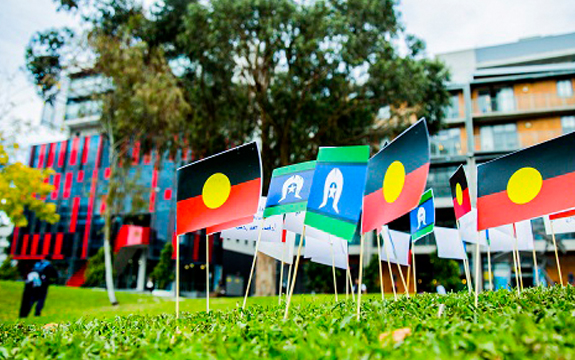Psychology's role in closing the mental health gap

In Summary
Indigenous studies should be integrated in psychology courses for all students, participants at a recent seminar on increasing cultural competency and Indigenous representation in psychology, were told.
The seminar was hosted by Swinburne University of Technology.
Host, Dr Stephane Shepherd, Research Fellow from the Centre for Forensic Behavioural Science at Swinburne said there continues to be a struggle in Australian society to find culturally appropriate and sustainable ways towards Indigenous health and wellbeing.
In a bid to close the Indigenous mental health gap, there has been a push to increase cultural understanding and Indigenous representation in psychology.
Dr Shepherd said Psychology, as a discipline and profession, is well positioned to play a significant role in overcoming indigenous disadvantage, but needs to contribute more actively to building relationships and understanding with Indigenous communities.
“We’re seeing an underrepresentation of Indigenous psychologists, barriers to Indigenous students studying psychology and alarming reports of the underutilisation of mental health service by Indigenous people,” Dr Shepherd said.
The seminar highlighted the need for respectful relationships to be established to ensure Indigenous priorities drive the process; the need for more Indigenous psychologists; and the need for all psychology students to have access to Indigenous studies.
Dr Sabine Hammond from the Australian Psychological Society stressed the lack of cultural protocol knowledge among psychology staff and students, and illustrated this point simply when she asked the audience of psychologists and psychology students: ‘Who knows if you should establish eye contact with an Indigenous client?’ No one volunteered an answer.
‘We need to incorporate and understand Indigenous approaches to health. Working with Indigenous clients should be an interactive process,’ Dr Hammond said.
“In order to overcome barriers to Indigenous students studying psychology we need better mentoring, appropriate support systems, culturally sensitive promotional material, and on-campus Indigenous support centres – a place for Indigenous students to feel safe.”
“There also needs to be a more inclusive curriculum, where we include Indigenous people in course design, and integrate Indigenous studies in psychology courses for all students.”
Dr Gregory Phillips, Senior Indigenous Consultant from the Australian Indigenous Psychology Education Project (AIPEP) said if psychology is serious about closing the gap the health system must first take responsibility for cultural safety and then let Aboriginal people lead the delivery of Aboriginal health services.
“If the whole system (health) has not thought about its privilege, its patterns of overt and inadvertent racism, then it is not ready to do Aboriginal health,” Dr Phillips said.

